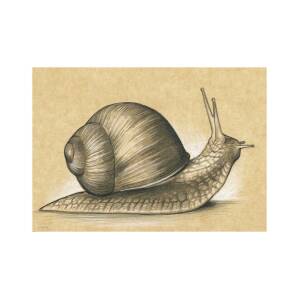Our prompt this month was to use as our jumping off point a piece by Jane Hirshfield — Two Versions, published in her latest book, The Asking. It is a spare poem, 16 lines long and a lot of white space, briefly sketching out two takes on a dream of wildness and wild creatures and our place as observers or interferers. It is painful and mysterious and lovely, like so many of Hirshfield’s poems.
I took from it, loosely, the form (mine is longer but is narrative and use some single, questioning lines) and also the themes of duality and the dilemmas we face by being human in a wild world.

Half a Mind
Liz Garton Scanlon
Inspired by Jane Hirshfield’s Two Versions
Once, in my 20s,
I rode shotgun in a car
through a mountainous night
and we collided with a deer.
I think it’s fair to say it that way.
It was an accident, but the deer died,
and we could not bear our violence,
the consequence of being human.
Years later, newly married,
we mucked our way through
an impossibly blurry season.
Snails showed up everywhere
like some sort of patient plague…
so many that I couldn’t make my way
into the house without crushing one.
I tried. It was unavoidable.
And just last month, right there, a pile
of debris on a windowsill. Carpenter ants,
beginning the task of undoing everything
in their way. Of undoing us.
I was of half a mind to let them be
to let them have the run of the place.
It was the other half a mind
I had to reckon with.
I still, always, have to reckon with.
You can read the others here…
Tanita (who is also our Poetry Friday host!)
Sara
Tricia
Mary Lee
Laura
Kelly
Next month, we wrap up the year by writing a haibun (prose + haiku) or a haiga (art + haiku) and sharing on the last Friday, December 27th. As always, we invite you to join us. Till then, friends, how grateful I am to be amongst big-hearted, open-minded, language-loving humans like you. xo Liz

Oh yes! I feel this! I still hear the crunch of the cicadas as I drove up the driveway–me apologizing the whole way.
Your poem seems to “rhyme” with mine, in that desire to let more-than-human nature have the “run of the place” again. To let the ants or the oaks begin
“the task of undoing everything
in their way. Of undoing us.”
The pain of “the consequence of being human” is palpable in your words. Ouch, and thank you.
Like Mary Lee, I found “the task of undoing everything/in their way. Of undoing us.” feels like the backlash to human actions. The ants find wood, they eat wood, so what’s the argument? Humans have taken actions too often without thought for the future! Time to change! Do you know “The World Without Us” by Alan Weisman. It’s eye-opening what is possible in nature, “without us”! Thanks for your most personal words, Liz!
THIS.
“It was the other half a mind
I had to reckon with.
I still, always, have to reckon with.”
I move spiders out of my house in a plastic cup. But other things…yeah, I murder them.
Oh, Liz. This resonates so strongly!! I struggle with this every season it seems… This co-living, this reckoning with our limitations when our humanness is sometimes so clueless and clumsy is… what keeps us humble, I guess.
This is just splendid, and I hope you consider sharing it more widely.
I totally get this. I like how you showed us the dilemma from early days and bring it forward to present day. And ants! I struggle with the sugar ants (more an annoyance than destructive).
Thank you for this.
“the other half” — so much reckoning we always have to do. Being human and being thoughtful kind of means being in anguish at least half our lives…I love the voice in this, Liz.
Oh the blurry seasons…thank your for this poem that is so so relatable. Great seeing you at NCTE too. xo
“The consequence of being human…”
I am reminded of the movie Ruthless People, where one of the kidnappers shepherded a spider outside, not wanting to kill it (then stomped on it later). It’s hard to be human in this wild world, as you put it. I hit an opossum carrying babies on it’s back on the way home from my senior banquet in high school. I cried for days and I still carry it with me. Your final line (the whole poem really), brings this back.
I like your casual voice, yet owning in this poem. Then you offer “I still, always, have to reckon with.” So much packed in this line and in the Jini one prior to it, good quandary into human responsibility, thanks Liz!
I feel every bit of this poem, Liz.
So much to reckon with, in so many ways. A beautiful take on the challenge.